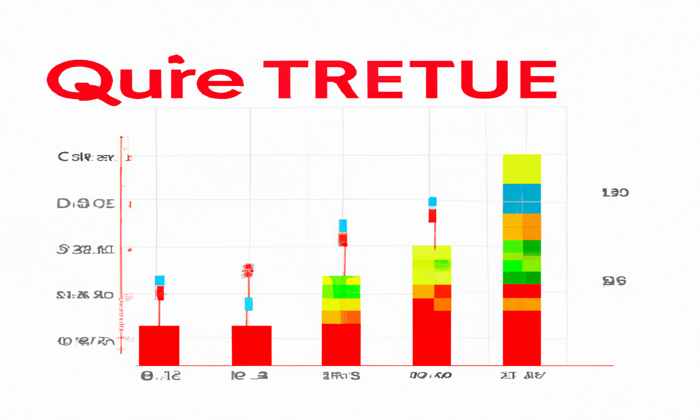Trump crypto ventures have come under intense scrutiny, particularly from Representative Maxine Waters. During a divisive hearing in the House Financial Services Committee, Waters lambasted former President Trump for what she termed his corrupt cryptocurrency practices, accusing him of enriching himself at the expense of unsuspecting investors. She highlighted concerns surrounding the Official Trump token (TRUMP), a meme coin whose value plummeted nearly 90%, signaling potential risks within Trump’s cryptocurrency initiatives. Waters expressed her worry that these ventures could allow foreign entities to secretly influence U.S. policies, which raises critical issues around cryptocurrency regulation. The ongoing debate around Trump and his crypto ventures emphasizes the urgent need for comprehensive crypto legislation to safeguard investors and ensure fair practices in this volatile market.
The financial landscape is quickly evolving, especially regarding the controversial crypto enterprises linked to Donald Trump. Recent discussions in Congress, spearheaded by key figures like Representative Maxine Waters, have brought to light significant allegations about these digital asset initiatives, including the infamous Trump meme coin. As critics voice their concerns, they argue that such ventures not only jeopardize investor interests but also pose risks of manipulation by external parties. The calls for tighter cryptocurrency governance are getting louder as lawmakers strive to craft robust legislation that addresses potential conflicts of interest connected to prominent figures like Trump. Navigating the complexities of digital currencies is crucial, and the unfolding dialogue around Trump’s ventures underscores the importance of establishing clear regulatory frameworks.
Maxine Waters’ Criticism of Trump’s Crypto Ventures
In a notable display of her commitment to investor protection, Representative Maxine Waters has voiced strong objections to the cryptocurrency endeavors linked to Donald Trump. During a recent House hearing, she accused Trump of exploiting the cryptocurrency market to enhance his personal wealth, highlighting the risks he poses to American investors. Waters stated that Trump’s ventures, particularly the controversial Official Trump token (TRUMP), have resulted in substantial losses for investors, emphasizing that the token has plummeted nearly 90% since its initial peak. This alarming decline raises vital questions regarding the ethical implications of such ventures and the lack of accountability for public figures engaging in high-risk financial schemes.
Moreover, Waters pointed out that these crypto ventures not only impact individual investors but could potentially have broader implications for financial stability. By drawing attention to the massive $2 billion losses incurred by investors in Trump’s meme coin, she alerts the public to the pervasive issues within the crypto market. Her criticism suggests that robust cryptocurrency regulation is essential to safeguard investors and ensure that ventures like Trump’s do not undermine trust in financial systems, hence pushing for legislative action from the House Financial Services Committee.
Waters’ assertions about Trump’s increased wealth amid investor losses underline a crucial aspect of the ongoing debate around cryptocurrency regulation. Her statement, which indicated that Trump has allegedly doubled his wealth from $2.3 billion to $5.6 billion through these ventures, echoes the concerns voiced by many in the financial services sector regarding the integrity of crypto assets. The potential for conflicts of interest looms large, with Waters and her colleagues advocating for legislative oversight to impose stricter guidelines on crypto operations, particularly those associated with high-profile figures like Trump.
The scrutiny of Trump’s crypto ventures is not merely a personal attack; it embodies a larger call for accountability within the cryptocurrency space. Waters, echoing sentiments of Senator Elizabeth Warren, insists that comprehensive crypto legislation should encompass mechanisms that prevent individuals with conflicting interests from exploiting unregulated markets, thereby fostering a fairer environment for all investors. The urgency for robust regulatory frameworks becomes increasingly evident as the landscape of cryptocurrency continues to evolve.
The Impact of Trump’s Meme Coin on Investors
The rise and fall of the Official Trump token (TRUMP) serves as a cautionary tale in the volatile cryptocurrency market. Initially launched as a meme coin with much fanfare, it showcased the potential for quick profits and hype-driven enthusiasm among investors. However, as Representative Maxine Waters highlighted during her critique, the drastic decline in the coin’s value illustrates the inherent risks associated with meme-based cryptocurrencies. Investors who bought into the buzz of purchasing a coin linked to a high-profile figure like Trump faced significant financial losses, amounting to billions of dollars wiped from market capitalization as the token’s price nosedived.
The experience of TRUMP token holders points to a greater issue within the cryptocurrency ecosystem, emphasizing the necessity for standardized regulations that can protect investors from such dramatic swings in asset values. As Congress contemplates cryptocurrency regulation, stakeholders advocate for clarity on how these assets are classified and governed. Waters’ concerns about providing preferential treatment to certain cryptocurrencies, such as with the proposed WLFI stablecoin, suggest the need for an equitable framework that doesn’t prioritize any individual or organization, ensuring that all investors are treated fairly in a manner that safeguards their interests against losses.
Legislative Actions and Crypto Regulation
As the cryptocurrency market continues to expand, the demand for comprehensive legislative actions has grown increasingly urgent. Representative Maxine Waters represents a faction within Congress that is pushing for significant changes to how cryptocurrencies are regulated in the United States. Her criticisms of Trump’s crypto ventures, particularly within the context of recent legislative activities by the House Financial Services Committee, highlight concerns that the current regulatory framework is insufficient to address the unique challenges posed by digital assets. Hauling Trump’s ventures into the spotlight, Waters calls for regulations that not only govern these assets but also protect ordinary investors from being caught in the crosshairs of speculative trading fueled by celebrity endorsements.
Moreover, Waters and her allies argue that any substantial crypto legislation must include checks and balances to mitigate potential conflicts of interest among influential figures. The financial services committee’s recent support for initiatives that could inadvertently bolster Trump’s crypto ambitions raises alarms about the implications of such actions on fair market practices and public confidence in financial systems. With the cryptocurrency landscape continually evolving, the establishment of clear guidelines aimed at regulating the relationship between high-profile individuals and digital assets will be crucial in fostering a sustainable financial environment that can withstand market volatility.
Concerns Over Foreign Influence in Crypto Ventures
In her address during the House hearing, Representative Maxine Waters raised alarming concerns regarding the potential for foreign influence through Trump’s cryptocurrency ventures. The possibility that interested parties, whether they be allies or adversaries of the U.S., can leverage cryptocurrency to anonymously funnel money to individuals within Trump’s inner circle emphasizes the need for stringent oversight. Waters articulated that without proper regulations governing cryptocurrency transactions, these ventures might serve as a conduit for external parties to undermine U.S. policy and promote their own agendas, detracting from the collective interests of American citizens.
The implications of foreign influence in domestic cryptocurrency markets spotlight the vulnerabilities that exist within the current regulatory landscape. As lawmakers navigate the complexities of cryptocurrency assets, Waters’ assertions serve as a clarion call to implement regulatory measures that monitor capital flows linked to cryptocurrency investments. This oversight could act as a deterrent against the exploitation of digital currencies for ulterior motives while simultaneously ensuring that the market remains a fair and transparent arena for all participants. As the debate on cryptocurrency legislation continues, Waters’ commentary reinforces the critical importance of safeguarding American financial interests in an increasingly interconnected global economy.
Role of the House Financial Services Committee
The House Financial Services Committee plays a pivotal role in shaping the landscape of cryptocurrency legislation in the U.S., and its recent actions have sparked considerable debate. Representative Maxine Waters, a prominent member of the committee, has been vocal about her concerns regarding the committee’s support for Trump’s crypto initiatives. She argues that endorsing measures that may benefit Trump and his ventures contradicts the committee’s responsibility to ensure fair market practices and protect investors. The committee’s proposals, aimed at regulating digital assets, must be crafted with a keen awareness of potential conflicts of interest, ensuring that no individual can unduly influence legislation for personal gain.
At the same time, Waters advocates for a balanced approach to cryptocurrency regulation that addresses both innovation and consumer protection. The challenge lies in crafting legislation that fosters growth within the cryptocurrency sector while ensuring robust safeguards are in place to mitigate risks to investors. As the House Financial Services Committee navigates these complex waters, Waters’ insights underscore the need for transparency and accountability in all proposed regulations. This commitment to ethical governance can help restore public trust in the financial system while supporting the responsible evolution of cryptocurrency and its associated technologies.
Maxine Waters and Elizabeth Warren’s Unified Front Against Deregulation
The alliance between Representative Maxine Waters and Senator Elizabeth Warren has emerged as a formidable force advocating for stringent regulations in the cryptocurrency sector. Both lawmakers have consistently expressed skepticism regarding the deregulation of cryptocurrencies, arguing that it poses significant risks to the financial system and investor protection. Waters has reiterated the need for strong safeguards within any forthcoming crypto legislation to address the potential conflicts of interest associated with figures like Donald Trump, demonstrating that public figures in financial markets must be held accountable to ensure a fair playing field for all investors.
Their united stance underscores a growing recognition of the complexities and challenges associated with digital assets. In a fragmented regulatory environment, Waters and Warren’s collaboration aims to foster a more comprehensive framework that harmonizes cryptocurrency regulation with traditional financial principles. By calling for transparency and ethical accountability, their efforts signal to both the cryptocurrency community and the broader market that a proactive approach to regulation is essential to protect investors and maintain the integrity of the financial system amid the evolving nature of digital currencies.
The Future of Cryptocurrency Regulation in the U.S.
As discussions surrounding cryptocurrency regulation intensify, the future landscape remains uncertain, particularly with the influence of high-profile figures like Donald Trump. The recent critiques by Representative Maxine Waters highlight a pivotal moment for lawmakers as they grapple with the challenges posed by rapidly evolving digital assets. Ensuring that the regulatory framework is robust enough to withstand market volatility while protecting investors is paramount. The potential for extensive change in U.S. crypto policy suggests that lawmakers must act swiftly to create pathways that foster innovation while prioritizing consumer protections.
Looking ahead, the interplay between traditional financial regulations and the unique characteristics of cryptocurrency will likely shape the legal framework established by Congress. As the House Financial Services Committee addresses these issues, their decisions will play a crucial role in determining how the market operates and how safeguards are established. Waters’ advocacy for responsible regulation signals a commitment to creating an equitable playing field for all investors, ensuring that the benefits of digital assets can be enjoyed without the pitfalls of exploitation or volatility.
Implications of Meme Coins on Market Integrity
The increasing popularity of meme coins, including the Official Trump token (TRUMP), has raised questions about market integrity and investor motive. While these coins often thrive on public sentiment and sociopolitical narratives, their volatility can lead to significant financial consequences for unprepared investors. Representative Maxine Waters’ criticism of Trump’s involvement in such assets emphasizes the propagation of high-risk investments that can harm the financial wellbeing of everyday Americans. The meteoric rise and subsequent plummet of meme coins can create an environment ripe for speculation rather than informed investment.
Educating potential investors about the inherent risks associated with meme coins underscores the need for clearer regulatory guidelines that delineate the characteristics and expectations of these digital assets. As final legislation around cryptocurrencies begins to take shape, it is critical that policymakers consider the implications of meme coins not only for individual investors but for the market as a whole. Establishing a framework that promotes transparency and accountability will be instrumental in nurturing a reliable cryptocurrency ecosystem that minimizes the chances of fraudulent activities while supporting legitimate innovation.
Frequently Asked Questions
What concerns does Maxine Waters have about Trump’s crypto ventures?
Maxine Waters has raised significant concerns about Trump’s crypto ventures, particularly accusing him of exploiting the cryptocurrency market to enrich himself at the expense of investors. During a recent House Financial Services Committee hearing, she labeled Trump’s meme coin, the Official Trump token (TRUMP), as a ‘fraudulent’ venture that has led to significant financial losses for investors, costing them around $2 billion.
How has Trump’s meme coin, the Official Trump token, performed recently?
The Official Trump token (TRUMP), a cryptocurrency associated with Trump’s ventures, has seen a dramatic decline, falling 89.93% from its peak value of $75.35 in January. This significant drop has fueled criticism from lawmakers like Maxine Waters, who argue that such ventures may mislead investors and raise questions about Trump’s wealth accumulation through crypto.
What implications could Trump’s crypto ventures have on U.S. policy according to critics?
Critics, including Representative Maxine Waters, argue that Trump’s crypto ventures could allow foreign and domestic entities to influence U.S. policy by anonymously funneling money to Trump and his associates. Waters voiced her concerns about the potential for corruption and manipulation of the political system during a House Financial Services Committee hearing, highlighting the dangers posed by these ventures.
What is the WLFI stablecoin and how is it related to Trump’s crypto ventures?
The WLFI stablecoin, recently announced, is a cryptocurrency that would be redeemable for U.S. dollars and backed by short-term U.S. Treasuries. Maxine Waters suggests that the stablecoin could potentially benefit from preferential regulatory treatment, further enabling Trump’s ambitions within the crypto market and leading to criticisms regarding regulatory oversight and conflict of interest.
What is the response of lawmakers like Maxine Waters regarding cryptocurrency regulation?
Lawmakers like Maxine Waters, along with Senator Elizabeth Warren, have consistently called for more stringent cryptocurrency regulation, particularly focusing on potential conflicts of interest related to Trump’s crypto ventures. They seek to ensure that any crypto legislation addresses the risks of corruption and protects investors from the ongoing volatility and deceitful practices associated with such ventures.
How has cryptocurrency legislation facilitated Trump’s ambitions, according to Maxine Waters?
Maxine Waters has asserted that certain cryptocurrency legislation has facilitated Trump’s ambitions in the crypto market, effectively labeling Trump as the ‘king of crypto.’ She claims that the recent decisions made by the House Financial Services Committee could enable Trump to dominate the stablecoin market, further raising alarms about the implications of such regulatory actions.
| Key Points | Details |
|---|---|
| Maxine Waters’ Criticism | During a House hearing, Representative Maxine Waters criticized Trump’s crypto ventures for allegedly enriching him at the investors’ expense. |
| Concerns over Corruption | Waters accused Trump’s ventures of raising serious concerns about corruption and harming both investors and the public. |
| Official Trump Token (TRUMP) | The meme coin has fallen 89.93% from its peak of $75.35 in January, viewed as a fraudulent scheme by Waters. |
| Wealth Increase | Waters pointed out that Trump’s wealth allegedly increased from $2.3 billion to $5.6 billion due to these ventures. |
| Impact on Investors | Waters claims Trump’s crypto activities have cost investors about $2 billion while benefitting him and his family by at least $350 million. |
| Foreign Influence Concerns | Waters noted that Trump’s ventures could potentially allow foreign or domestic entities to influence U.S. policy. |
| Criticism of Subcommittee | Waters criticized the subcommittee for facilitating Trump’s ambitions and potentially allowing him to monopolize the crypto market. |
| New Stablecoin Announcement | The WLFI stablecoin, USD1, is backed by U.S. Treasuries, raising concerns about preferential regulatory treatment. |
| Legislative Actions | Waters and Elizabeth Warren advocate for crypto legislation that addresses conflicts of interest related to Trump. |
Summary
Trump crypto ventures have drawn significant criticism, particularly from Representative Maxine Waters, who argues that these ventures enrich Trump while harming investors. During a recent House hearing, Waters highlighted the dangers posed by Trump’s involvement in crypto, particularly regarding allegations of corruption and mismanagement of investor funds. As the debate continues, the implications of Trump’s crypto activities and their potential influence on U.S. policy remain crucial topics in the financial landscape.
Trump crypto ventures have recently come under fire during a contentious House hearing led by Representative Maxine Waters. In her pointed critique, Waters accused Trump of leveraging his cryptocurrency projects to inflate his wealth at the expense of investors. The hearing brought to light the drastic decline of Trump’s meme coin, the Official Trump token (TRUMP), which has plummeted nearly 90% since its peak in January. Advocating for stricter cryptocurrency regulation, Waters voiced her concerns about potential corruption linked to Trump’s financial maneuvers in the crypto space. As discussions continue around crypto legislation, Waters emphasized the need for oversight to protect investors from such ventures that can distort the market.
In the realm of digital finance, Donald Trump’s ventures into cryptocurrency have sparked significant controversy, particularly highlighted during a recent congressional hearing led by Representative Maxine Waters. This session raised alarms regarding the implications of Trump’s financial exploits on cryptocurrency markets, including his infamous meme coin, known as the Official Trump token. Waters articulated fears not only about investor harm but also of potential regulatory failures that could allow these financial products to proliferate unchecked. As discussions unfold around the need for cryptocurrency regulation, the House Financial Services Committee is grappling with how to address the complexities surrounding Trump’s influence in the crypto landscape. The scrutiny from lawmakers underlines an urgent call for comprehensive legislation to mitigate risks associated with digital currencies.














Leave a Reply